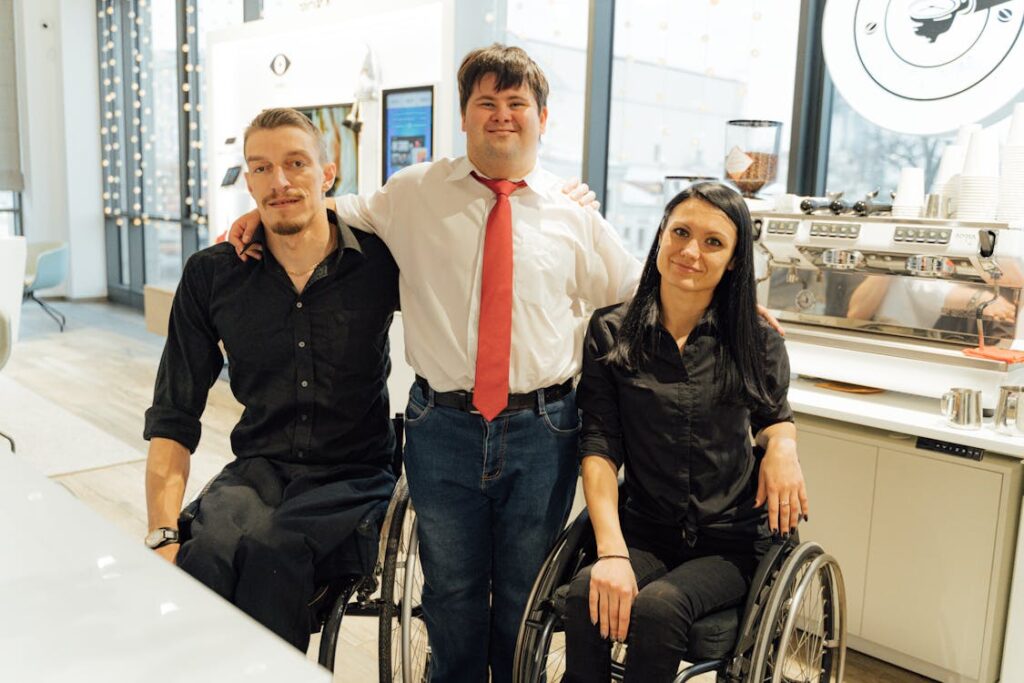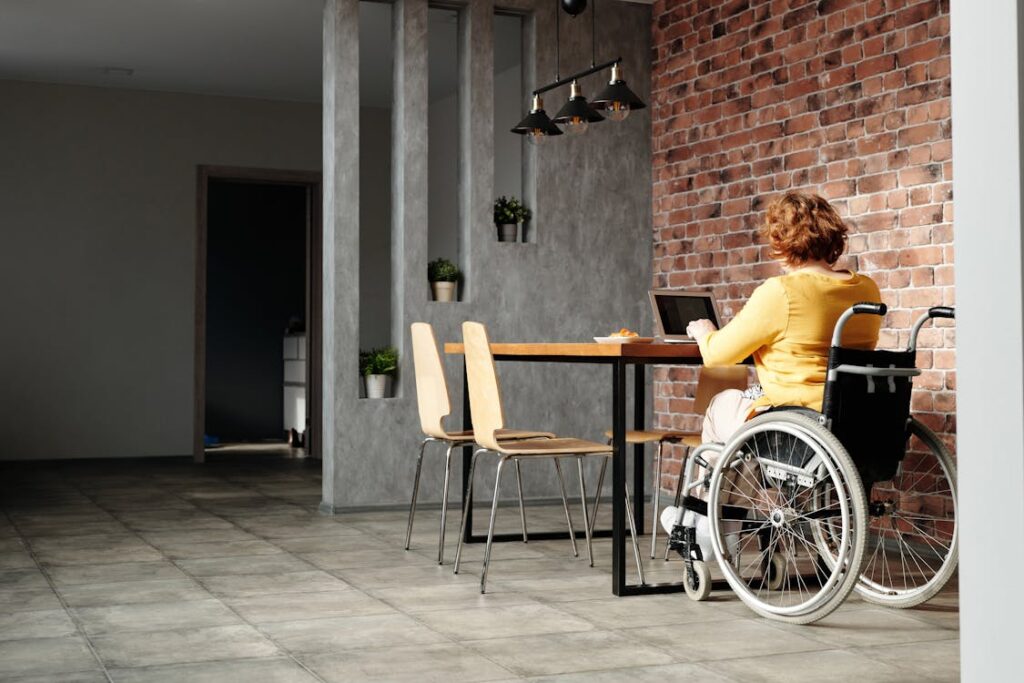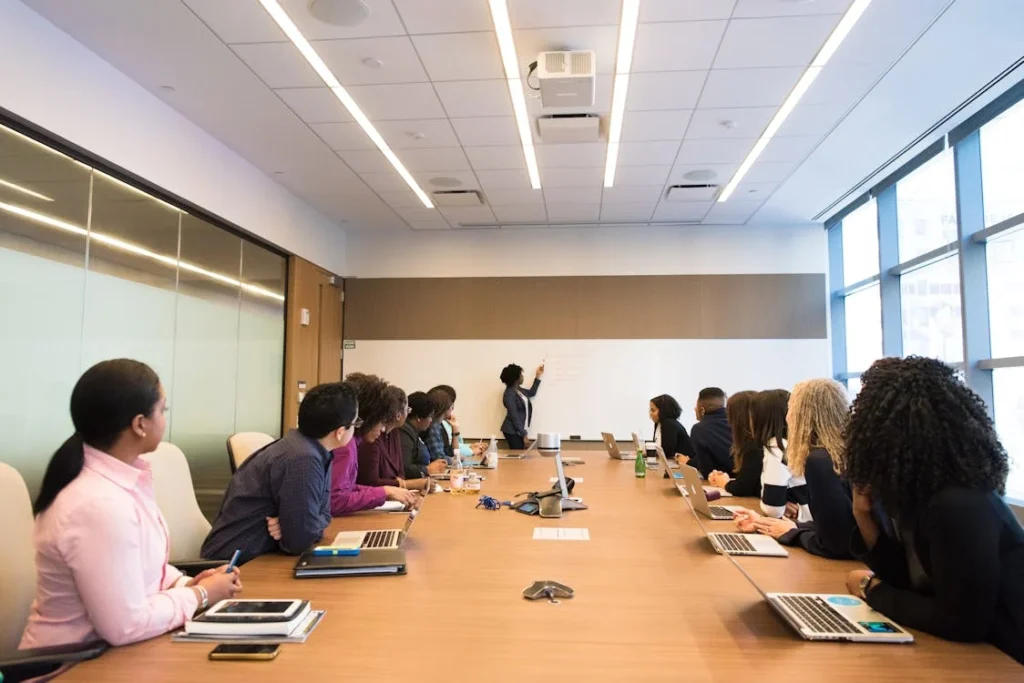Workplace accessibility in India has long been a challenge, but startups are changing the landscape with innovative solutions. From assistive technology to inclusive hiring platforms, young companies are leveraging technology and human-centered design to create work environments where everyone, including people with disabilities, can thrive.
India has a vast, untapped talent pool of individuals with disabilities, yet many workplaces remain inaccessible due to outdated infrastructure and traditional hiring practices. However, a new wave of startups is proving that accessibility is not just about compliance—it’s about creating opportunities, improving productivity, and fostering diversity in the workforce.
With smart solutions ranging from AI-driven hiring tools to ergonomic prosthetics and digital accessibility software, Indian startups are making it easier for businesses to embrace inclusion. This shift is not only benefiting employees with disabilities but also helping companies enhance efficiency, attract top talent, and build stronger brands.

The Rise of Indian Startups in Workplace Accessibility
A New Wave of Innovation
Indian startups are leading a revolution in workplace accessibility by addressing long-standing challenges with fresh ideas and cutting-edge technology.
Traditionally, businesses viewed accessibility as an afterthought, something that required significant investment with limited returns.
However, innovative startups are proving that accessibility is not just about compliance—it is about efficiency, productivity, and expanding the talent pool.
Young companies are introducing solutions that eliminate barriers for employees with disabilities, making it possible for them to work seamlessly in corporate environments.
These solutions range from AI-powered recruitment platforms that match candidates with inclusive employers to adaptive workstations that accommodate people with mobility impairments.
Entrepreneurs are not just developing assistive tools; they are reimagining the way businesses approach inclusion.
Assistive Technology: Transforming the Modern Workplace
One of the most significant advancements in workplace accessibility is the use of assistive technology. Indian startups are at the forefront of developing solutions that make workplaces more inclusive and efficient.
Speech-to-text software is enabling employees with hearing impairments to participate in meetings without the need for interpreters.
AI-driven communication tools are allowing visually impaired employees to read documents, respond to emails, and navigate digital interfaces with ease.
Startups specializing in prosthetic technology, such as Robobionics, are making workplaces more accessible by providing advanced, ergonomic prosthetics that restore independence.
Employees with upper-limb differences can now use bionic hands with sensory feedback, allowing them to perform tasks that were once challenging in traditional office settings.
These innovations are not just improving accessibility but also boosting confidence and productivity among employees with disabilities.
Inclusive Hiring Platforms: Bridging the Employment Gap
Despite having the necessary skills and qualifications, many job seekers with disabilities struggle to find employment due to biases and inaccessible hiring processes.
Indian startups are tackling this issue by creating digital hiring platforms that focus exclusively on inclusive recruitment. These platforms connect companies with talented candidates who may have previously been overlooked.
Some startups are leveraging AI to make the hiring process fairer. Traditional hiring practices often rely on face-to-face interviews, which can disadvantage candidates with speech impairments or mobility challenges.
AI-driven assessment tools analyze a candidate’s skills through online tests and job simulations rather than relying on conventional interview methods. This shift ensures that hiring decisions are based on merit rather than physical ability.
Beyond hiring, these startups also provide training programs that prepare individuals with disabilities for the workforce.
From soft skills development to technical training, these initiatives equip job seekers with the tools they need to succeed in professional environments. As a result, businesses can access a highly skilled workforce that was previously underrepresented in the job market.
Redesigning Workspaces for Accessibility
Physical workplace infrastructure has often been a barrier to employment for people with disabilities. Startups in India are addressing this by offering innovative solutions that make office spaces more inclusive.
Companies that once considered accessibility modifications too expensive or complicated are now adopting smart, cost-effective designs to ensure that all employees can work comfortably.
From modular workstations that adjust to different physical needs to voice-activated office systems that assist employees with limited mobility, startups are transforming traditional office setups.
Some are even using the Internet of Things (IoT) to automate accessibility features, such as doors that open with facial recognition or desks that adjust to different heights with a simple voice command.

Digital Accessibility: Making Workplaces More Inclusive
The Growing Need for Digital Accessibility
In today’s workplace, digital tools are an essential part of daily operations. Emails, project management platforms, HR portals, and video conferencing software are used in almost every job.
However, these digital tools often remain inaccessible to employees with disabilities. Indian startups are tackling this issue by developing software solutions that make digital workplaces more inclusive and user-friendly.
Many corporate websites and internal portals are not designed with accessibility in mind, making it difficult for visually impaired or neurodiverse employees to use them.
Startups are introducing AI-powered screen readers, voice-controlled navigation tools, and real-time captioning software to bridge this gap.
By integrating these technologies, businesses can ensure that employees with disabilities have the same access to information and resources as their colleagues.
AI and Automation for Workplace Inclusion
Artificial intelligence and automation are transforming workplace accessibility by enabling employees with disabilities to interact with digital platforms effortlessly.
Startups are using AI-driven voice recognition to help individuals with mobility impairments operate computers without the need for a keyboard or mouse.
These solutions allow employees to draft emails, navigate websites, and complete tasks using voice commands, significantly increasing workplace efficiency.
Real-time transcription services powered by AI are also changing the way meetings are conducted. Employees with hearing impairments can now participate in discussions without the need for a human interpreter.
These solutions integrate seamlessly into video conferencing platforms, providing instant captions that allow employees to follow conversations with ease.
By making meetings and communication accessible, businesses create an environment where every employee can contribute effectively.
Another breakthrough in workplace accessibility is the use of AI-powered chatbots and virtual assistants. These tools help employees with cognitive disabilities by simplifying complex tasks, providing reminders, and breaking down information into easy-to-understand formats.
With these innovations, employees who may have struggled with traditional work processes can now work more independently and confidently.
Gamification and Training for Accessibility Awareness
One of the key challenges in workplace accessibility is a lack of awareness among employees and management. Many businesses want to be inclusive but do not know where to start.
Indian startups are addressing this by developing interactive training programs that educate employees on accessibility best practices.
Gamification is emerging as a powerful tool in disability awareness training. Instead of traditional lectures or manuals, companies are using immersive simulations that allow employees to experience the workplace from the perspective of a colleague with a disability.
These simulations create empathy and understanding, helping teams build a more supportive and inclusive work environment.
Some startups are also using virtual reality (VR) to train employees on accessibility challenges. By simulating real-world scenarios, VR training helps businesses identify potential barriers and develop proactive solutions to make their workplaces more accommodating.
This hands-on approach ensures that accessibility becomes an integral part of company culture rather than just a compliance requirement.
The Role of Startups in Policy Advocacy
Beyond technology and infrastructure, Indian startups are also playing a crucial role in advocating for stronger accessibility policies.
Many young companies are working closely with policymakers to push for workplace regulations that encourage businesses to adopt inclusive practices.
By partnering with government bodies, startups are helping shape policies that ensure accessibility is not just an option but a standard across industries.

How Indian Startups Are Making Digital Workspaces More Accessible
The Importance of Digital Accessibility
As more businesses shift to remote and hybrid work models, digital accessibility has become a key focus for Indian startups.
Many employees with disabilities face challenges navigating software, communication platforms, and online work tools that are not designed with inclusivity in mind.
Startups are addressing this gap by developing digital solutions that make virtual workplaces more accessible and user-friendly.
Traditional office environments posed physical accessibility challenges, but the digital world presents its own set of obstacles. Visually impaired employees often struggle with websites and applications that lack screen reader compatibility.
People with hearing impairments may find it difficult to participate in virtual meetings without live captions. Employees with motor impairments may need alternative navigation options beyond a standard keyboard and mouse.
These challenges limit job opportunities and career growth for many individuals with disabilities.
By developing assistive software and integrating accessibility features into mainstream digital tools, startups are ensuring that employees with disabilities can contribute effectively, whether they are working in an office or remotely.
Companies are realizing that inclusive digital workspaces improve productivity, enhance employee engagement, and create a fairer work environment for all.
AI and Automation for Inclusive Digital Communication
Artificial intelligence is playing a crucial role in making digital workplaces more accessible. Startups are leveraging AI-powered tools to provide real-time solutions for employees with disabilities.
Speech-to-text applications enable hearing-impaired employees to follow conversations in virtual meetings, while AI-based screen readers improve navigation for visually impaired professionals.
Chatbots and virtual assistants powered by AI are also improving accessibility. Employees with limited mobility can now perform tasks through voice commands instead of manual typing or mouse clicks.
AI is even being used to simplify complex documents by breaking down information into easy-to-read formats, benefiting employees with cognitive disabilities.
Some Indian startups are working closely with multinational corporations to integrate these features into widely used platforms such as Microsoft Teams, Google Meet, and Zoom.
These collaborations are ensuring that accessibility is not treated as an add-on but as an essential part of digital workplace design.
Making Online Learning and Upskilling More Inclusive
Career growth depends on continuous learning, but many e-learning platforms are not designed for people with disabilities. Indian startups are addressing this issue by developing inclusive educational tools that allow employees with disabilities to upskill without barriers.
Startups specializing in accessible e-learning are incorporating screen-reader-friendly courses, AI-generated transcripts, and interactive lessons designed for different learning abilities.
Some are also using virtual reality (VR) and augmented reality (AR) to create immersive training experiences for employees with disabilities, allowing them to develop hands-on skills in a safe and controlled environment.
These innovations are helping businesses retain diverse talent by providing professional development opportunities tailored to the needs of employees with disabilities.
As companies invest in training programs that accommodate all employees, they foster a culture of inclusivity and equal career advancement.

The Role of Startups in Changing Corporate Mindsets
Shifting from Compliance to Inclusion
For years, workplace accessibility in India was seen primarily as a compliance issue. Many companies made minimal efforts to accommodate employees with disabilities, often treating accessibility as a legal requirement rather than a business advantage.
Indian startups are now challenging this outdated mindset by demonstrating that true inclusion goes beyond meeting regulations—it is about creating workplaces that empower employees to reach their full potential.
By offering innovative solutions that enhance productivity and engagement, startups are helping businesses see accessibility as an investment rather than an obligation.
Companies that embrace accessibility often experience higher employee retention, improved morale, and stronger brand loyalty.
Indian startups are making it easier for businesses to integrate accessibility seamlessly into their operations, showing that inclusion is not just good ethics—it is good business.
Encouraging Companies to Rethink Hiring Practices
A major challenge in workplace accessibility has been the hiring process itself. Many companies still use outdated recruitment models that unintentionally exclude candidates with disabilities.
Traditional job interviews often require in-person interactions, which can be difficult for individuals with mobility impairments.
Standard written assessments may not accommodate those with visual or learning disabilities. These hiring barriers result in highly skilled candidates being overlooked.
Indian startups are introducing alternative hiring methods that focus on skills rather than physical abilities. Virtual hiring platforms designed for people with disabilities allow job seekers to showcase their talents through online assessments, video resumes, and skill-based tests.
These platforms connect inclusive employers with candidates, ensuring a fairer and more efficient recruitment process.
Some startups are even using AI-driven tools to remove unconscious bias in hiring. Automated screening processes evaluate candidates based on their capabilities rather than external factors, ensuring that companies select employees purely on merit.
By transforming how businesses approach hiring, startups are not only increasing employment opportunities for people with disabilities but also helping organizations build stronger, more diverse teams.
The Role of Awareness Campaigns and Corporate Training
One of the biggest reasons companies hesitate to invest in workplace accessibility is a lack of awareness. Many employers do not fully understand the needs of employees with disabilities or the simple modifications that can make a workplace more inclusive.
Indian startups are addressing this gap through corporate training programs, workshops, and awareness campaigns.
These initiatives educate business leaders and HR teams on best practices for disability inclusion. Startups are conducting in-depth training sessions that cover topics such as accessible workplace design, assistive technology integration, and inclusive management strategies.
By working directly with companies, these startups are fostering long-term change and helping businesses build cultures that prioritize accessibility.
Large corporations in India are increasingly partnering with startups to implement customized accessibility training for their employees.
These training programs not only make workplaces more inclusive but also improve team collaboration by helping all employees understand and support their colleagues with disabilities.
As awareness grows, businesses are becoming more proactive in making their work environments more accessible.

Government Support and Policies Driving Startup Innovation
The Role of Government in Encouraging Accessibility
The Indian government has played a crucial role in promoting workplace accessibility by introducing policies that encourage businesses to hire and support employees with disabilities.
While traditional corporate environments have been slow to adapt, government initiatives have provided the foundation for startups to step in and create innovative solutions that make accessibility a reality.
The Rights of Persons with Disabilities (RPwD) Act, 2016, has been a major step forward in ensuring equal opportunities for people with disabilities.
The law mandates that companies with more than 20 employees provide reasonable accommodations and an inclusive work environment.
This has encouraged businesses to seek out accessibility solutions, creating a market for startups specializing in assistive technology, inclusive hiring, and adaptive workplace design.
Funding and Incentives for Accessibility Startups
Several government programs and grants are now available to startups focused on accessibility.
Initiatives such as the Accessible India Campaign (Sugamya Bharat Abhiyan) have raised awareness about the need for inclusive infrastructure, motivating startups to develop cost-effective solutions for businesses.
Government-backed incubators and funding schemes, such as Startup India and Atal Innovation Mission, have provided financial support and mentorship to entrepreneurs working in the disability inclusion space.
These programs help startups scale their operations and bring their products to a wider market, ensuring that accessibility solutions reach businesses of all sizes.
Additionally, tax incentives and financial assistance programs encourage companies to invest in accessibility improvements.
Businesses that partner with startups to implement inclusive hiring and workplace modifications can benefit from these incentives while improving their workforce diversity.
Public-Private Partnerships in Workplace Accessibility
Many Indian startups are now collaborating with government bodies and large corporations to drive accessibility at a national level.
Public-private partnerships are leading to large-scale adoption of inclusive workplace solutions, from AI-driven hiring platforms to digital accessibility tools.
Government agencies have started working with startups to create accessible digital platforms for job seekers with disabilities. These platforms connect individuals with inclusive employers and provide career development resources.
By leveraging technology, these collaborations are helping bridge the employment gap and create sustainable career opportunities for people with disabilities.
Corporate social responsibility (CSR) initiatives are also playing a role in supporting startups focused on accessibility. Large companies are increasingly funding accessibility-focused ventures as part of their CSR commitments, further accelerating the impact of these innovations.
The Future of Accessibility-Driven Entrepreneurship
As government policies continue to evolve, Indian startups are well-positioned to drive meaningful change in workplace accessibility.
The combination of legal requirements, financial incentives, and increased awareness has created a favorable environment for startups to thrive.
Businesses that embrace these innovations are not only complying with regulations but also creating more inclusive, productive workplaces.
With continued government support and growing corporate interest, accessibility-focused startups have the potential to redefine India’s workforce.
The next decade will likely see even greater advancements in assistive technology, inclusive hiring, and workplace design, making accessibility an integral part of India’s economic growth.

The Long-Term Impact of Accessibility Innovation on Indian Workplaces
Creating a More Inclusive Corporate Culture
The efforts of Indian startups in workplace accessibility are not just about providing assistive technology or inclusive hiring solutions; they are driving a larger cultural shift in the corporate world.
Traditionally, workplaces in India have been designed with a one-size-fits-all approach, often neglecting the needs of employees with disabilities.
However, as accessibility solutions become more common, businesses are starting to rethink how they design office spaces, develop policies, and build company cultures.
When accessibility becomes a core part of an organization’s values, it fosters an environment where all employees, regardless of their abilities, feel valued and empowered.
Companies that actively integrate accessibility measures often see improved employee engagement, higher job satisfaction, and increased collaboration across teams.
Employees become more aware of different abilities and learn to appreciate diverse perspectives, ultimately leading to a more harmonious and innovative workplace.
Startups working in this space are helping organizations move beyond basic compliance and embrace accessibility as an ongoing commitment.
They are providing businesses with the tools and strategies needed to implement long-term inclusion programs, ensuring that accessibility is not treated as a temporary initiative but as a fundamental aspect of workplace development.
Business Benefits of an Accessible Workplace
While accessibility is often viewed through the lens of social responsibility, businesses that invest in inclusive workplaces experience tangible benefits.
One of the most immediate advantages is increased employee productivity. When employees with disabilities have access to the right tools and accommodations, they can perform their jobs more effectively and contribute meaningfully to their organizations.
Additionally, companies that prioritize accessibility tend to attract top talent.
As more job seekers—both with and without disabilities—become aware of the importance of inclusive workplaces, businesses that demonstrate a commitment to accessibility gain a competitive edge in recruitment.
Job candidates are increasingly drawn to employers that value diversity and inclusion, making accessibility a key factor in talent acquisition.
Customer perception is another critical advantage. Consumers today are more socially conscious than ever, and businesses that advocate for accessibility earn greater trust and loyalty from their customer base.
Companies that integrate inclusive practices into their products, services, and marketing efforts often experience stronger brand recognition and customer retention.
Expanding the Scope of Accessibility Innovation
The success of Indian startups in workplace accessibility is not limited to corporate offices.
Many of these innovations are now being applied to industries such as manufacturing, retail, and education, ensuring that people with disabilities have access to a wider range of career opportunities.
For example, startups are developing adaptive tools for factory workers with physical impairments, ensuring that accessibility is not confined to desk jobs.
In the retail sector, AI-driven customer service tools are enabling employees with disabilities to work in sales and customer support roles without barriers.
Even educational institutions are adopting accessibility technology to create more inclusive learning environments, ensuring that students with disabilities are prepared for the workforce of the future.
As workplace accessibility continues to evolve, the impact of these innovations will extend far beyond office spaces.
Indian startups are setting the stage for a more inclusive society where accessibility is not an afterthought but an essential part of how businesses operate and grow.
Conclusion
Indian startups are revolutionizing workplace accessibility, proving that inclusion is not just about compliance but about unlocking human potential. By leveraging AI, assistive technology, and digital innovation, these companies are making it easier for businesses to create environments where employees with disabilities can thrive.
Beyond improving infrastructure and hiring practices, startups are driving a cultural shift in corporate India. Businesses that embrace accessibility benefit from increased productivity, stronger employee engagement, and enhanced brand reputation. As more organizations recognize the value of inclusive workplaces, accessibility is becoming a competitive advantage rather than an obligation.
With continued government support, corporate partnerships, and growing awareness, the future of workplace accessibility in India looks promising. Startups are not just solving immediate challenges; they are paving the way for long-term change that will reshape the workforce for generations to come. Businesses that invest in accessibility today will lead the way in creating a more diverse, innovative, and inclusive India.



